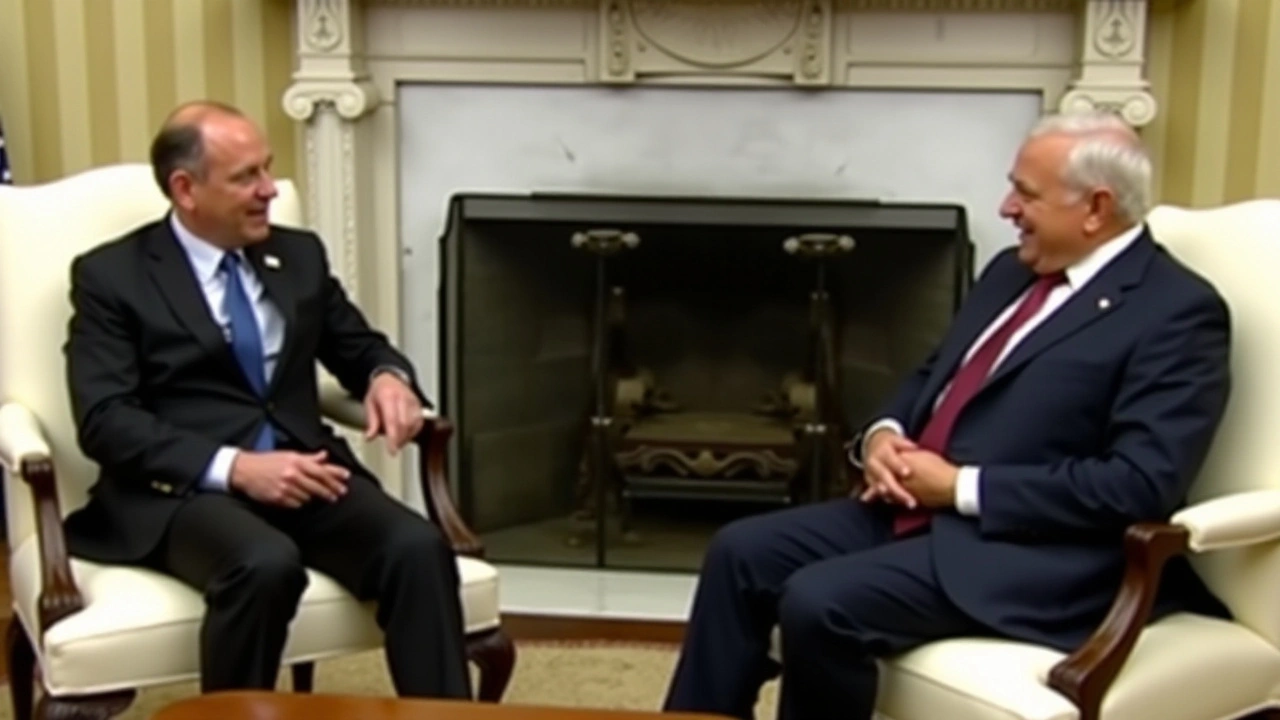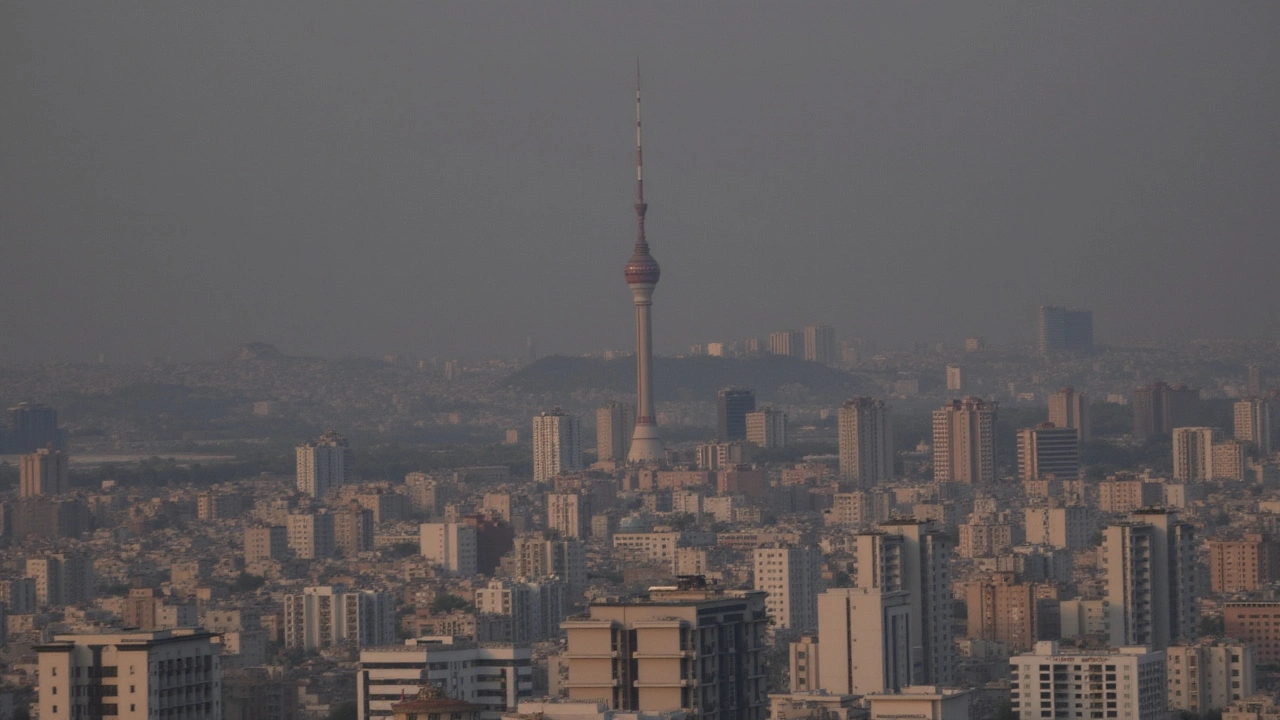Iran Reports Limited Damage from Israeli Attack
In the early hours of Saturday, October 26, 2024, a significant development unfolded in the Middle East as Iran reported that Israeli military strikes on its bases caused limited damage. These strikes, which were carried out at around 22:30 GMT on Friday, November 25, targeted approximately 20 key locations across Iran, affecting cities such as Ilam, Khuzestan, and Tehran. Despite the widespread scope of these attacks, the Iranian air defense command successfully countered many of the strikes. The primary damage occurred to radar systems, and while there was no catastrophic infrastructure loss, the reality remains that four Iranian soldiers tragically lost their lives.
Israeli Military's Stated Justification
The Israeli Defense Forces (IDF) characterized the operation as completed with precision, emphasizing it as a preemptive measure against what they describe as ongoing threats from Iran and its proxies. Israeli military spokesperson Daniel Hagari justified this intense military action by pointing out a series of provocations and threats from Tehran over recent months. He argued that Israel holds a right to defend itself from any potential aggression intended to destabilize the region. Further, he indicated that any retaliatory measure by Iran would be met with a robust and decisive response from Israel.
International Reactions and Appeal for De-escalation
The strikes have spurred a cascade of reactions globally, with significant figures in the international community urging restraint on both sides. The United States, while not directly involved in the operation, remains a staunch ally of Israel. Sean Savett, a spokesman for the National Security Council, called attention to the need for calm, urging Iran to halt its aggressive maneuvers against Israel, which he categorized as direct threats to Israeli security. Savett reinforced the narrative that Israel's strikes were solely targeting military objectives as a form of self-defense.
Saudi Arabia was quick to issue a condemnation of the strikes, labeling them as a breach of sovereignty and calling for a de-escalation of tensions in the region. The United Kingdom, another key player on the global diplomatic stage, echoed similar sentiments. Prime Minister Keir Starmer conveyed support for Israel's self-defense rights while urging Iran to avoid retaliatory actions that could further worsen the situation.

Other Global Perspectives and Calls for Intervention
Pakistan and Malaysia joined the chorus of nations expressing disapproval of the Israeli strikes, citing them as violations of international law. Pakistan took a step further by urging the United Nations Security Council to urgently convene and address the burgeoning crisis. Meanwhile, the United Arab Emirates voiced its concern, advocating for maximum restraint to avoid a further spiral into conflict.
Within Iran, the sense of national pride and sovereignty remains undeterred, with the Foreign Minister asserting an unwavering commitment to defend its territorial integrity. This stance underscores the unpredictable nature of Middle Eastern geopolitics, where tensions between Iran and Israel seem particularly heightened following a recent, deadly assault by Hamas on southern Israel.
The Broader Context of Middle Eastern Tensions
These recent developments come in the shadows of an already tense narrative shaping the Middle East, influenced heavily by the standoff between Israeli and Iranian forces. Just weeks prior, on October 3, 2024, a Hamas-led assault on southern Israel marked a devastating chapter in the ongoing conflict, resulting in thousands of casualties, both dead and injured. This incident has exacerbated the already volatile situation, fueling retaliatory cycles that draw in regional players on both sides.
The complex web of alliances and enmities in the region plays a crucial role in shaping responses and strategies. Iran's strategic positioning and its network of allies create a dynamic where each action is viewed not in isolation but as part of a broader game of geopolitical chess. Israel, meanwhile, faces the challenge of safeguarding its citizens against these perceived threats while balancing international diplomacy and regional security dynamics.
Prospects for Peace and Future Uncertainties
As the situation stands, the path towards a peaceful resolution remains riddled with challenges. Diplomatic efforts are vital to averting further escalation, yet the deep-seated hostilities and mistrust between the involved parties cannot be ignored. The region's history is marred with cycles of violence that feed into current tensions, making the prospects for sustained peace unpredictable and fraught with complexity.
Observers remain hopeful that calls for diplomatic engagement and conflict resolution will eventually prevail, although the road ahead appears long and formidable. As both nations grapple with internal and external pressures, the international community's role in mediating and encouraging dialogue is as crucial as ever. The stakes are high, and the humanitarian implications underscore the pressing need for strategic, peaceful resolutions to an unrelenting conflict.
In conclusion, the delicate balance of power and opinion in the Middle East requires a cautious approach to ensure that today's provocations do not spiral into tomorrow's crises. The focus must remain on fostering dialogue and understanding amidst a backdrop of entrenched rivalries and emerging threats.


Jasmine Hinds
October 27, 2024 AT 01:10Wow this is huge🔥 lets hope cooler heads prevail
Madison Neal
October 28, 2024 AT 17:50The operational footprint described suggests a calibrated kinetic response, adhering to the principles of proportionality under the ROE. From a diplomatic standpoint, the language of “limited damage” serves as a strategic communication tool to modulate escalation thresholds. Moreover, the reference to radar degradation hints at a focus on ISR attrition rather than direct force-on-force engagement.
John Crulz
October 30, 2024 AT 05:56It’s clear the region is on a tinderbox, but the narrative could benefit from a broader lens that includes non‑state actors and proxy dynamics. Balancing the security imperatives of both sides without resorting to zero‑sum framing is essential for any sustainable de‑escalation pathway.
Anita Drake
October 31, 2024 AT 15:16Remember that these disputes are embedded in decades‑long historical grievances, which shape public sentiment on both sides. Engaging cultural mediators alongside diplomatic channels can help bridge perception gaps and foster mutual understanding beyond the immediate military calculus.
Eduardo Lopez
November 1, 2024 AT 21:50The recent strikes represent a stark illustration of moral bankruptcy that can only be condemned in the strongest terms. When a state wields its military might under the pretense of “self‑defense” while inflicting civilian casualties, it betrays the very essence of international law. Such actions betray an arrogant hubris that presumes the right to punish without accountability. The veneer of precision that the IDF flaunts masks a deeper strategic calculus aimed at destabilizing a sovereign nation. History teaches us that the cycle of retaliation fuels a perpetual inferno, devouring generations. The loss of four Iranian soldiers, while tragic, pales in comparison to the broader humanitarian toll that this conflict inevitably accrues. We must therefore denounce any narrative that glorifies violence as a legitimate policy instrument. Diplomacy, however fragile, remains the sole conduit through which genuine peace can be envisioned. The global community has a responsibility to vocalize unequivocal opposition to extrajudicial strikes. It is insufficient to merely call for “restraint”; we must demand concrete measures that halt further aggression. International norms are not optional footnotes but binding imperatives that safeguard human dignity. Allowing such transgressions to proceed unchecked sets a perilous precedent for future conflicts. The rhetoric of “right to defend” should never be weaponized to legitimize offensive operations. In this charged atmosphere, the voices of reason and compassion must rise above the din of militaristic posturing. Only then can we hope to steer the Middle East away from an endless spiral of bloodshed.
Nancy Perez de Lezama
November 3, 2024 AT 01:36Honestly, this whole “limited damage” claim sounds like a PR stunt to downplay a serious breach.
Matt Heitz
November 4, 2024 AT 04:00The alleged precision of the operation is nothing but a euphemism for aggressive overreach that disregards sovereign rights. From a nationalist perspective, any encroachment on territorial integrity, regardless of the perpetrator, must be met with decisive countermeasures. Moreover, the strategic calculus underpinning such strikes reflects a dangerous escalation of proxy warfare dynamics that destabilizes the entire region.
Susan Mark
November 5, 2024 AT 05:00For those wondering about the radar damage, it primarily impairs early‑warning capabilities, which could temporarily reduce the effectiveness of air defense networks. However, such systems are often redundant, and a swift repair protocol can mitigate prolonged vulnerability.
Jason Jennings
November 6, 2024 AT 04:36Just another power play, nothing new.
Diego Vargas
November 7, 2024 AT 02:50u cant ignore the fact that this is part of a broader pattern of hegemonic posturing by supset powers. its not just about irn or isr, its about maintaining global balance.
Alex Lee
November 7, 2024 AT 23:40This is stupid and only hurts innocent people.
Vida Yamini
November 8, 2024 AT 19:06While the sentiment captures a certain frustration, it’s helpful to unpack the underlying strategic motivations. Understanding that these moves are often driven by complex security dilemmas can foster a more nuanced discussion. Encouraging constructive dialogue rather than dismissive shorthand can also promote empathy across differing viewpoints. Let’s aim for deeper analysis rather than blanket statements.
James Lawyer
November 9, 2024 AT 13:10Legally speaking, any cross‑border kinetic action without prior UN authorization raises questions under Article 2(4) of the UN Charter. The principle of non‑intervention obliges states to refrain from the use of force against the territorial integrity or political independence of another state, barring self‑defense justified by an imminent threat.
Abby Culbertson
November 10, 2024 AT 05:50i feel really sad about the loss of life you know it’s just so heartbreaking.
Awolumate Muhammed Abayomi
November 10, 2024 AT 21:06Yoooo fam! Let’s all keep pushing for peace and stay positive, we can make a difference together!
Josh Tate
November 11, 2024 AT 11:00I hear the concern about civilian safety, and it’s valid. The notion of “limited damage” might mask deeper humanitarian impacts that need thorough assessment.
John Smith
November 11, 2024 AT 23:30Everyone forgets that this is just another chapter in the endless saga of Middle Eastern power games – nothing new, just history repeating itself.
Alex Soete
November 12, 2024 AT 10:36Great analysis! It really underscores why a diplomatic push is vital. I’m hopeful that collective pressure can steer leaders toward negotiations rather than more strikes.
Cara McKinzie
November 12, 2024 AT 20:20What a disaster! This whole thing is just a circus of chaos.
Joseph Conlon
November 13, 2024 AT 04:40While the optimism is commendable, one must recognize that optimism alone cannot offset entrenched geopolitical rivalries. The reality on the ground is that both parties possess deep‑seated narratives that resist superficial peace overtures. Moreover, external actors often exploit these tensions for their own strategic gains, further complicating any straightforward resolution. Therefore, a cautious, multi‑layered approach that addresses security guarantees, economic incentives, and regional trust‑building is essential. Simply urging “more pressure” without concrete frameworks may prove ineffective. In sum, the path to stability demands both idealism and pragmatic realism.